Artificial intelligence is transforming education and artificial intelligence by enhancing learning experiences and easing administrative burdens for educators. This article explores the current and potential impacts of AI on education, including personalized learning, AI-driven feedback, and ethical concerns.
Key Takeaways
The integration of AI in education enhances personalized learning experiences, making them more effective and engaging for students.
AI technologies streamline administrative tasks for educators, allowing them to concentrate on instructional quality and student engagement.
Addressing ethical concerns, such as data privacy and algorithmic bias, is essential for the responsible integration of AI in educational settings.
Understanding Artificial Intelligence in Education
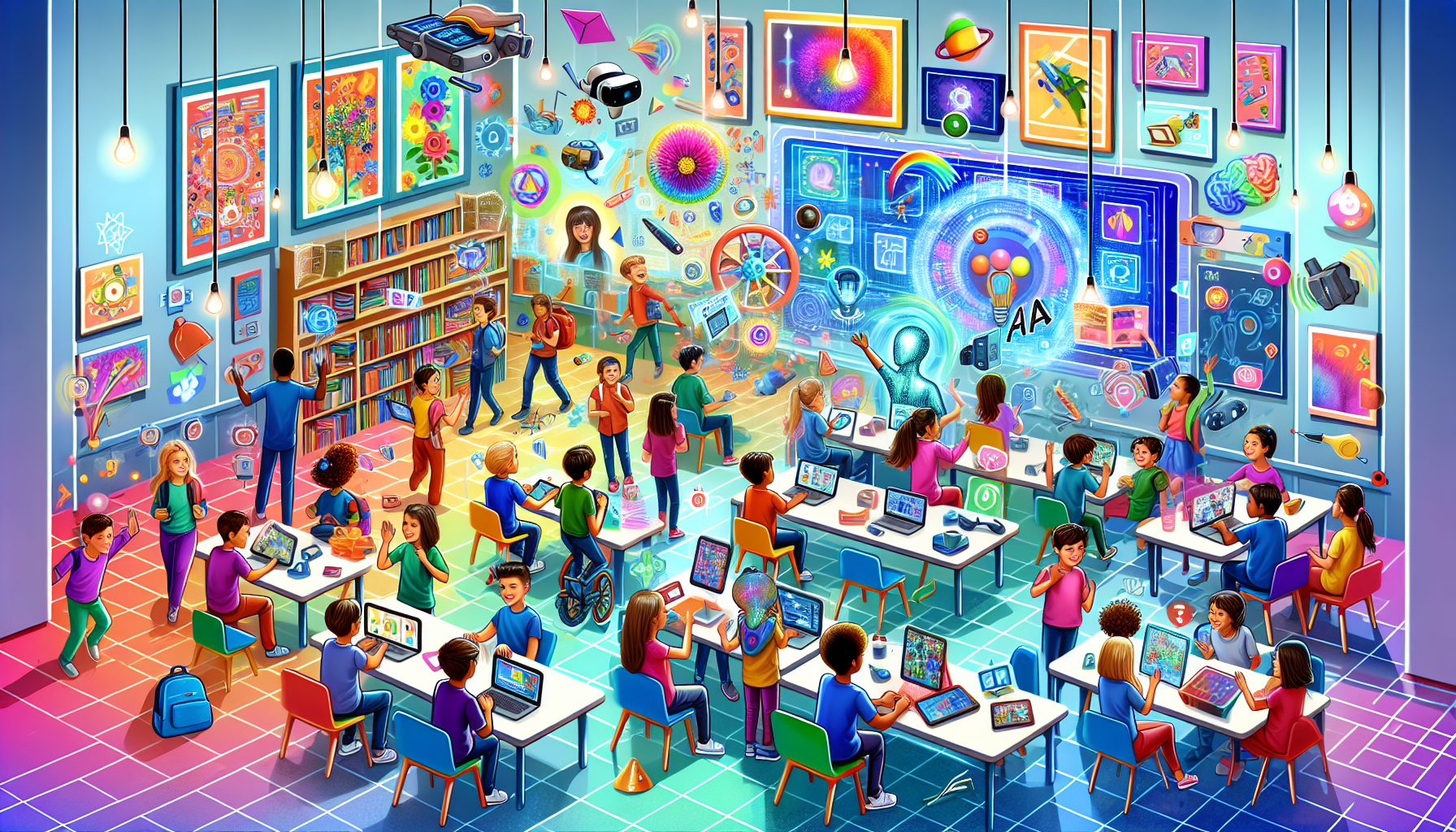
Artificial intelligence empowers machines to perform tasks that typically require human intelligence, such as decision-making and problem-solving. In the education sector, AI tools provide different learning methods and assist educators with lesson planning and marking. The rapid development of generative AI has enabled the production of text, images, audio, and video for educational purposes, making high-quality teaching resources more accessible.
The integration of AI in education today is significantly impacting the learning process. AI’s ability to learn, combined with big data and modern computing power, has led to its increasing adoption in the education system. Currently, AI adoption in education remains in the early and experimental phase, with educators uncertain about its benefits and limitations. Despite this, surveys indicate that a significant majority of educators believe AI positively influences teaching and learning.
Disciplines such as cognitive psychology, neuroscience, education, sociology, and language learning contribute to building AI systems for education. Understanding the learning sciences can lead to an intelligence infrastructure that empowers social interaction for learning. This interdisciplinary approach ensures that AI technologies are designed to support and enhance the educational experience rather than replace human educators.
Personalized Learning with AI Tools
One of the most exciting developments in artificial intelligence in education is the ability to provide personalized learning experiences. AI tools can create customized educational experiences that adapt to the individual needs of students, enhancing their overall learning journey. These AI-driven educational platforms adjust learning experiences based on students’ unique needs and performance, making the learning process more effective and engaging.
AI technologies can be integrated into educational settings through various means, including AI-driven games and tutoring systems. These tools not only make learning more interactive but also ensure that each student receives the support they need to succeed. Tailoring educational content to individual learners, AI has the potential to transform traditional teaching methods and create a more inclusive and effective education system.
Adaptive Learning Platforms
Adaptive learning platforms utilize machine learning to generate personalized lesson plans based on student performance data. These platforms analyze student data to tailor lesson plans and quizzes specifically for individual learning paces. For instance, CogBooks provides a personalized educational path for learners, adjusting content delivery based on individual progress.
AI technologies help create tailored educational resources, adapting to specific classroom needs to enhance instruction. Generating customized lesson plans and quizzes, AI tools meet the specific needs of educators and their students. This approach ensures that high-quality teaching resources are available, catering to the diverse learning styles and paces of students.
AI-Powered Feedback Systems
AI-powered feedback systems are transforming the way students receive guidance and support in their learning processes. These systems can instantly assess student work and provide constructive feedback in subjects such as math and language arts. With an accuracy rate of 91%, AI can help students identify their strengths and weaknesses, offering personalized feedback that enhances their learning experience.
AI-driven assistants provide real-time feedback and support to students during lessons, enhancing engagement and helping them stay on track. Providing immediate feedback on assignments, AI tools allow students to quickly address mistakes and improve their understanding of the subject matter. This continuous support ensures that students receive timely and relevant feedback, fostering a more effective learning environment.
Enhancing Teaching with AI Technologies
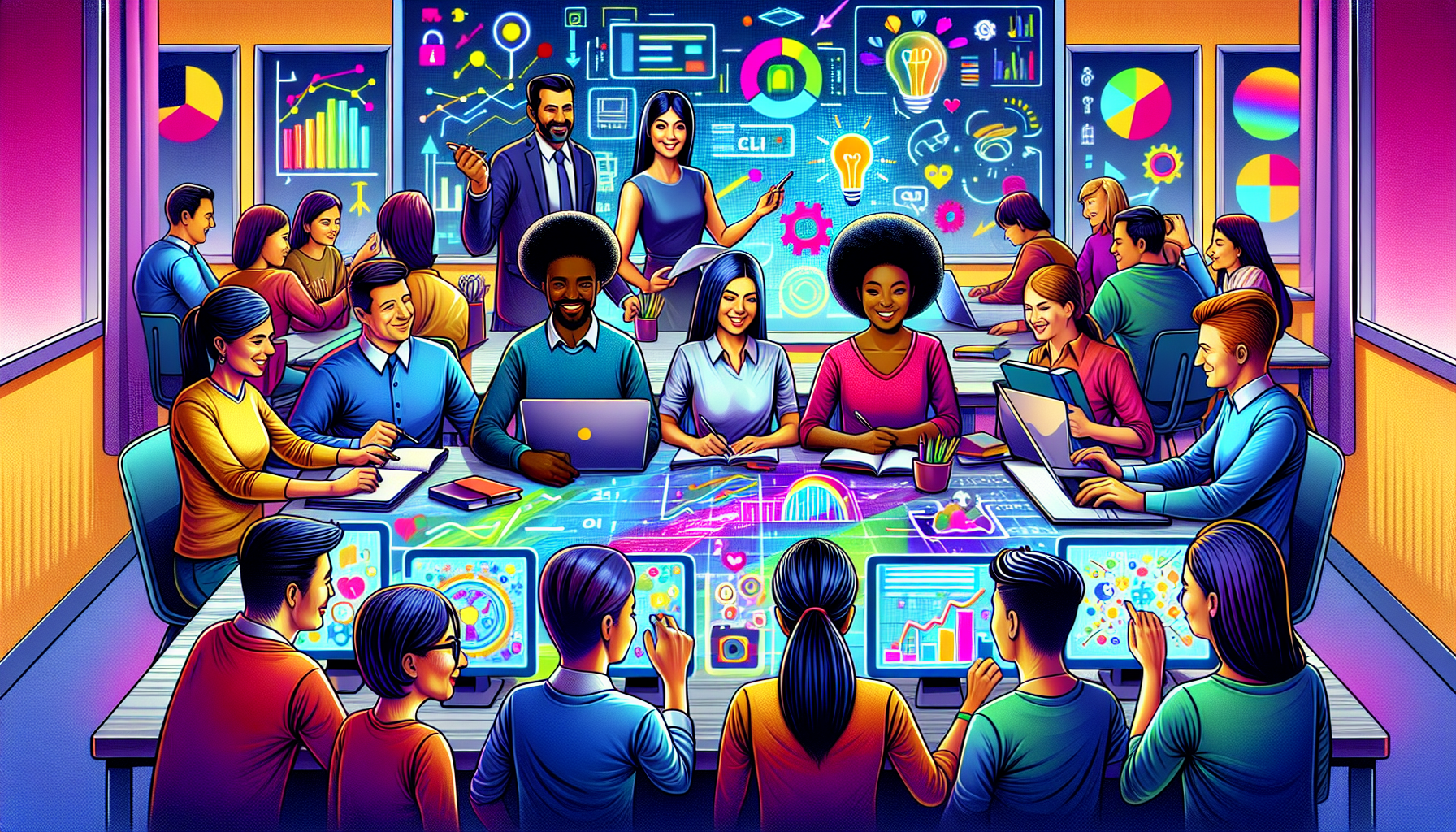
AI technologies are not only transforming the learning process but also enhancing teaching. A technological revolution is underway as AI tools can automate administrative tasks, allowing educators to focus more on direct student engagement. This reduction in administrative burdens enables teachers to concentrate on providing high-quality instruction and support to their students.
AI tools can significantly minimize the time teachers spend on administrative duties, allowing for a greater focus on instructional quality. These teaching tools streamline communication and record-keeping, making classroom management more efficient. Providing immediate feedback on assignments, AI powered tools enhance students’ learning by allowing them to quickly address mistakes and improve their understanding.
Teachers are increasingly using AI tools for educational games, adaptive learning, automated grading, and student support. These feedback systems not only enhance student learning but also empower teachers by offering insights into student performance trends. As a result, educators can make data-driven decisions to improve their teaching strategies and outcomes.
Lesson Planning and Resource Creation
Investment in AI for education aims to reduce teachers’ workloads and improve education quality. AI-powered lesson planning and quiz-building tools are being developed to support teachers. For example, Oak National Academy has created AI tools that assist teachers in lesson planning and generating quizzes, improving teaching efficiency.
These AI-generated lesson plans and quizzes have been positively received by most teachers, demonstrating their utility in educational settings for a particular subject. AI-powered virtual assistants can handle routine tasks, enabling teachers to spend more time engaging directly with students.
Additionally, a human oversight mechanism ensures that AI outputs can be edited by teachers, maintaining professional judgment in lesson delivery.
Virtual Teaching Assistants
AI-driven virtual assistants are designed to support teachers in classroom management and to boost student engagement through interactive learning. These assistants can handle routine tasks, answer common student questions, and provide additional support during lessons, allowing teachers to focus on more complex instructional activities.
Leveraging AI technologies, virtual teaching assistants can provide high-quality teaching resources and support, ensuring that students receive the help they need to succeed. This innovative approach not only enhances the learning experience but also empowers teachers to deliver more effective and personalized instruction through emerging technology.
Addressing Ethical Concerns in AI Integration
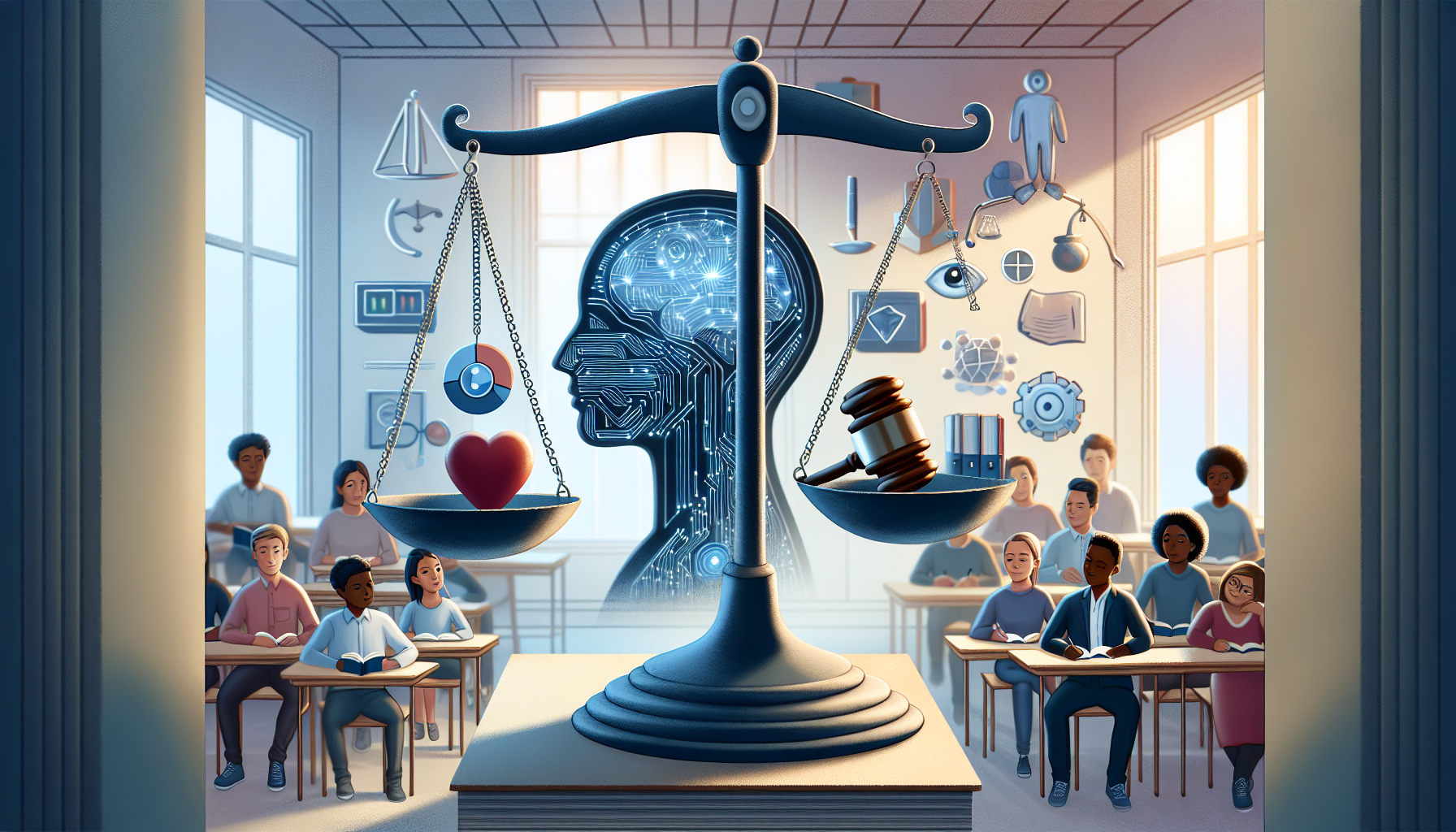
The integration of AI in education brings with it several ethical concerns. Issues such as academic dishonesty, reduction of human interaction, and data privacy are significant challenges that need to be addressed. There is a call for more education on the ethical use of AI in schools, as most educators acknowledge the need for responsible AI integration.
Schools must adapt their policies regarding plagiarism as AI-generated content becomes more prevalent. Additionally, school leaders must implement digital literacy training for both staff and students to navigate the ethical challenges associated with AI usage.
By addressing these concerns, educators can ensure that AI is used responsibly and effectively in the classroom.
Ensuring Data Privacy
Data privacy is a significant concern among educators, necessitating training on data protection to comply with regulations and responsibly handle student information. Transparent communication with students and parents about data collection practices builds trust and addresses privacy issues. Educational institutions must implement strong encryption and access controls to safeguard student information from unauthorized access.
Protecting student data involves minimizing the amount of data collected and ensuring ethical use of that data. Transparency regarding data collection and its usage must be prioritized to inform parents and students effectively.
AI literacy education should include understanding the ethical implications of AI and data usage.
Mitigating Algorithmic Bias
Algorithmic bias is another critical issue that needs to be addressed in AI integration. Schools should provide professional development for educators on algorithmic bias and the ethical use of AI. Regular audits of AI algorithms are essential to identify and rectify biases that may impact educational equity.
Educators should promote transparency in AI systems to understand how algorithms function and identify potential biases. Regular audits and evaluations of AI systems ensure that biases are identified and corrected, leading to more equitable educational outcomes.
Preparing Students for an AI-Driven Future
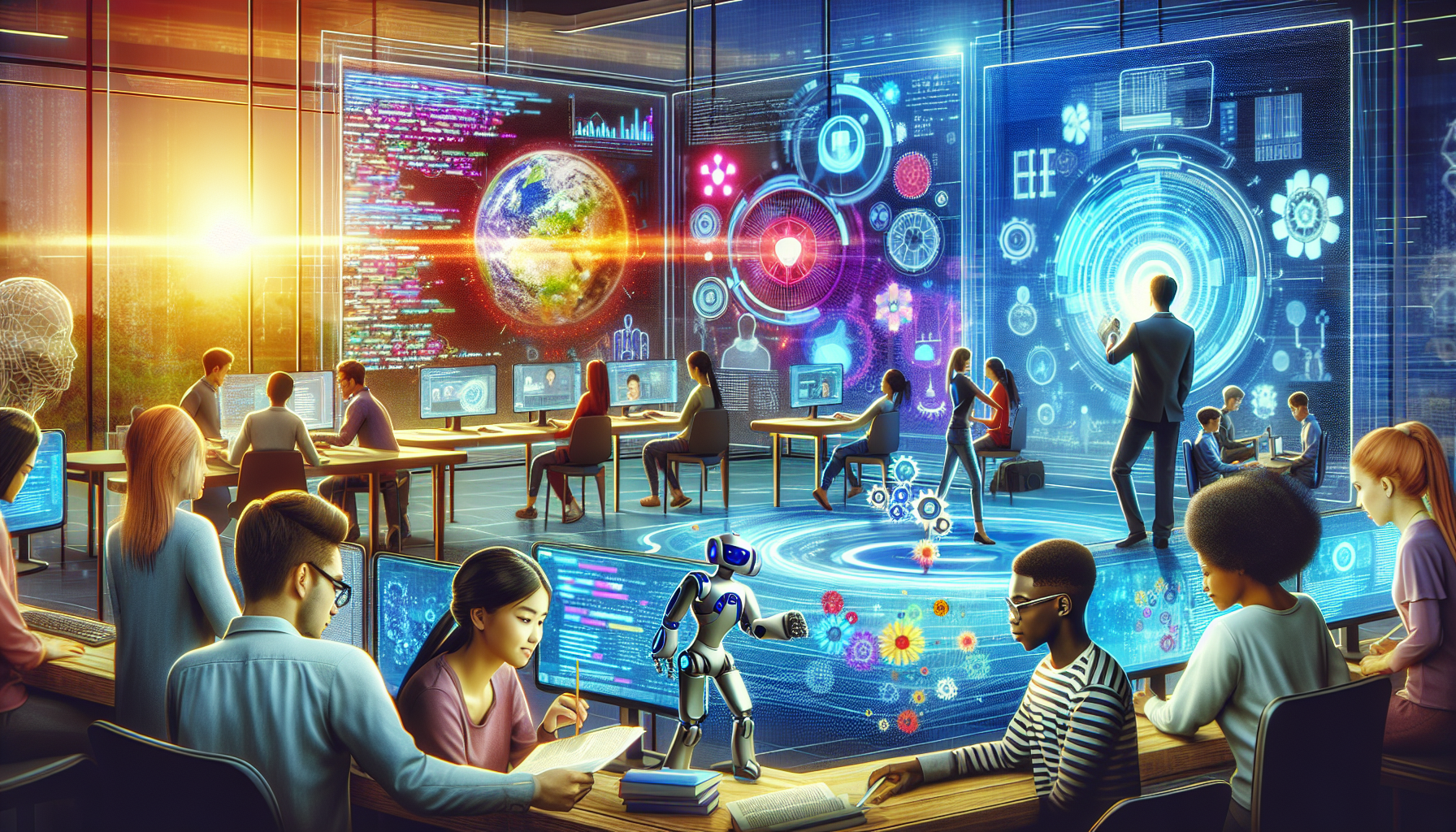
As AI continues to shape the future job market, it is crucial to prepare students for an AI-driven future. Understanding AI in education helps people see necessary changes and embrace new learning methodologies. Educators play a critical role in helping learners develop intelligent behaviors and advanced thinking skills suited for future job markets.
Introducing AI in education helps students develop essential skills for future job markets. However, over-reliance on AI may diminish educator-learner relationships and affect students’ writing and critical thinking skills. Therefore, it is important to strike a balance between leveraging AI technologies and maintaining human-centric educational approaches.
Teaching AI Literacy
Teaching AI literacy is crucial for preparing students for an AI-driven future. Understanding ethics in data processing and AI usage is emphasized as crucial in AI education. Incorporating bias awareness into lessons helps students develop critical thinking regarding AI systems.
Integrating AI literacy into the curriculum ensures that students are well-equipped to navigate the complexities of AI technologies. This includes understanding the ethical implications of AI and developing the skills needed to use these technologies responsibly.
Developing Emotional and Social Intelligence
In addition to technical skills, developing emotional and social intelligence is essential for students in an AI-driven world. Skills such as empathy and emotional understanding are vital as AI lacks these human-centric abilities. Fostering these skills helps students navigate the social and emotional challenges of the future.
Emotional intelligence and social intelligence are critical for building strong relationships and contributing positively to society. As AI continues to advance, these human-centric skills will become increasingly important in differentiating human capabilities from those of machines.
Collaborative Efforts in AI and Education Development
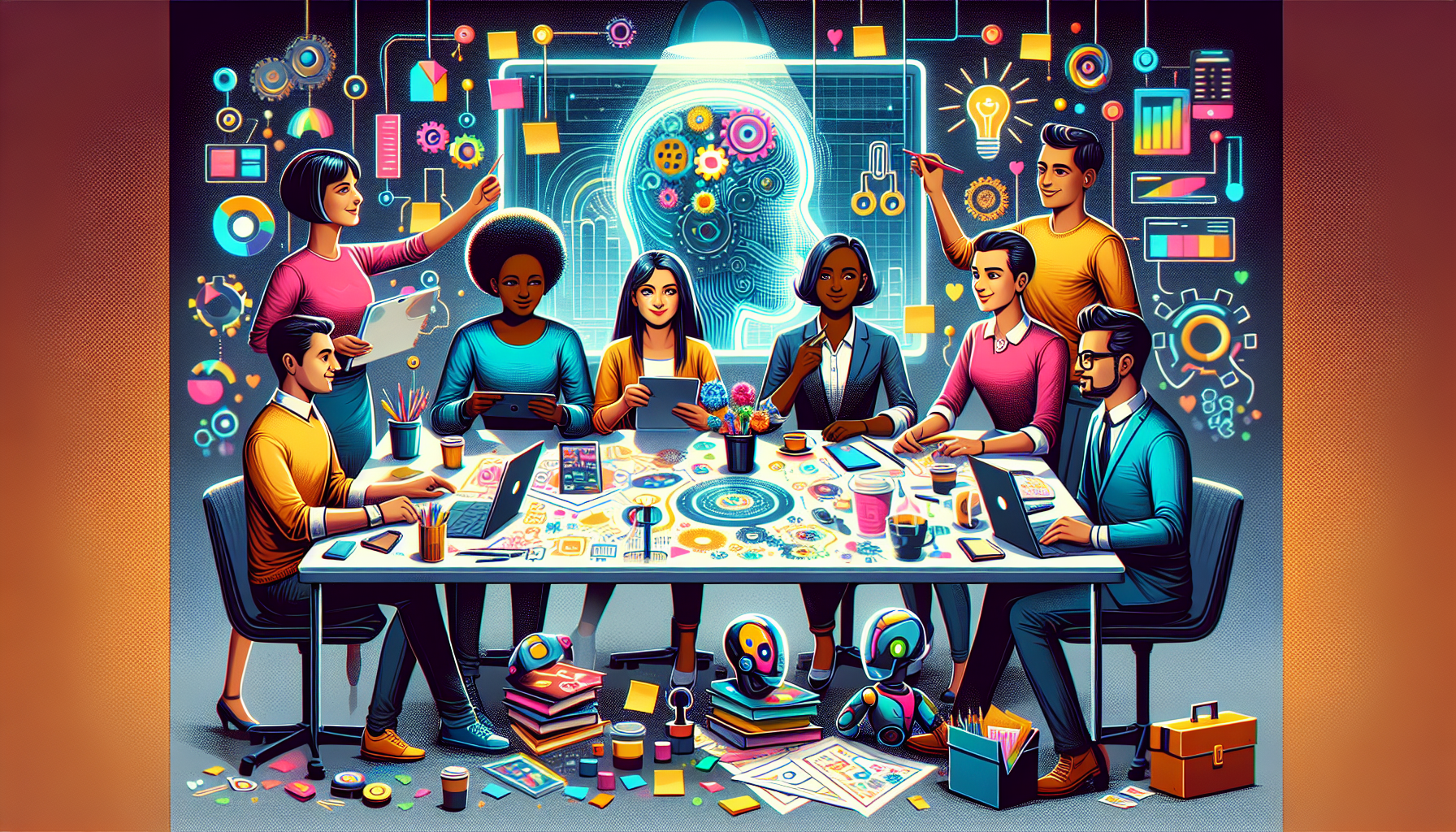
Collaborative efforts between educational innovators and technology developers are essential for creating effective AI applications in learning contexts. The EDUCATE program fosters collaboration between educational innovators and developers to improve AI applications in learning environments. These AI solutions are structured to enhance the educational environment and assist educators in their teaching responsibilities.
The introduction of AI solutions in education aims to support teachers’ roles rather than replace them. Working together, educators and technology developers can create AI tools that enhance the learning experience and support high-quality teaching.
Case Study: Oak National Academy
Oak National Academy has been at the forefront of collaborative efforts to develop AI tools that enhance educational resources for both teachers and learners. Resources developed by Oak are subjected to strict quality assurance processes to ensure they are accurate and safe for classroom use. These collaborative efforts and focus on transparency ultimately lead to improved teaching and learning outcomes.
Transparency from AI vendors regarding their algorithms is essential to address potential biases and ensure equitable educational outcomes. By prioritizing transparency and collaboration, Oak National Academy sets an example for other educational institutions to follow.
The Role of School Leaders in AI Integration
School leaders play a vital role in ensuring that teachers and staff understand both the capabilities and limitations of AI tools in education. Effective integration of AI in schools requires school leaders to promote experimentation with AI technologies among educators. Fostering open discussions about AI integration allows school leaders to share experiences and best practices within the school community.
School leaders must also ensure that educational professionals receive the necessary training and support to effectively use AI tools. This includes providing professional development opportunities and creating a culture of continuous learning. By taking these steps, school leaders can facilitate the successful integration of AI technologies in education.
Summary
The integration of AI in education holds immense potential to transform the learning process and enhance teaching. From personalized learning experiences to AI-powered feedback systems, AI technologies are reshaping the educational landscape. However, it is crucial to address ethical concerns, such as data privacy and algorithmic bias, to ensure responsible AI integration.
As we prepare students for an AI-driven future, it is important to focus on both technical skills and emotional intelligence. By fostering collaboration between educators and technology developers, and by empowering school leaders to drive AI integration, we can create a more effective and inclusive education system. The future of learning is here, and it is up to us to embrace these innovations and shape a brighter future for education.
Frequently Asked Questions
How can AI be used in schools?
AI can be effectively utilized in schools for various purposes such as classroom management, lesson planning, language learning, and enhancing communication between parents and teachers. Its integration into educational practices can significantly improve efficiency and learning outcomes.
How does AI personalize learning in the classroom?
AI personalizes learning in the classroom by utilizing adaptive learning platforms and tools that customize lesson plans and assessments according to each student’s performance and requirements. This approach ensures that learning experiences are tailored to maximize individual student success.
What are the benefits of AI-powered feedback systems?
AI-powered feedback systems offer real-time, personalized insights with high accuracy, enabling users to pinpoint their strengths and weaknesses effectively. This enhances the overall learning experience significantly.
How can AI assist teachers with lesson planning and resource creation?
AI can significantly aid teachers by generating tailored lesson plans and quizzes, thus alleviating their workload and enhancing teaching efficiency. Utilizing platforms such as Oak National Academy enables educators to create high-quality resources effectively.
What ethical concerns are associated with AI in education?
Ethical concerns associated with AI in education primarily involve academic dishonesty, reduced human interaction, data privacy, and algorithmic bias. To address these issues, schools should establish robust data protection protocols and carry out regular audits.


